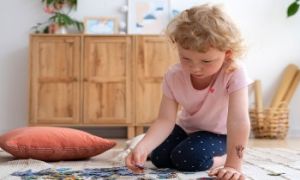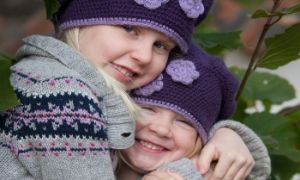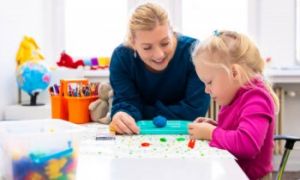EYLF Outcomes In Action provides examples of how each learning outcome can be demonstrated within the learning environment. These are great to display to show how children and Educators are actively engaging in each learning outcome.
EYLF Outcome 1: Children Have A Strong Sense Of Identity In Action
- Children are willing to learn new things
- Role modelling of supportive social interactions
- Get down to the child's level and be supportive
- Children try new things
- Build self-help skills
- Children express feelings
- Create a sense of belonging
- Children keep trying and don't give up
- Children transition smoothly into care
- Children show an awareness of others
- Long blocks of play to allow children to explore
- Children show an understanding of how things in their world work
- Children take some control over their world through decision making and choice
- Children have a secure and trusting base to return to
EYLF Outcome 2: Children Are Connected With And Contribute To Their World In Action
- Embed cultural activates
- Bring in community members to share their knowledge
- Children help pack away and look after resources
- Children express feelings
- Go on walking excursions in the local community
- Children are encouraged to discuss diversity
- Collaborate in decision making
- Discuss meaningful world events
- Educator’s role model supportive and meaningful relationship that convey acceptance
- Children value inclusive practice and equity
- Play based opportunities to discuss culture using resources
- Children know about their community
- Fairness doesn't mean everyone wins
- Children share and take turns in play
EYLF Outcome 3: Children Have A Strong Sense Of Wellbeing In Action
- Be a real model for children
- Outdoor play is valued and supported by all educators
- Health is discussed through play and mean times
- Children express feelings
- Build relationships to support children
- Children have physical development opportunities in most activities
- Children feel strong and capable
- Children develop their fine motor skills regularly
- Understand physical development is crucial for school readiness to be able to sit at a table and hold a pencil
- Children can take risks in their physical development
- Physical activity is supported in play, not just planned activities
- Children know their feelings are important
- Children recognise other's emotions
- Children grow and eat their own their own healthy foods
EYLF Outcome 4: Children Are Confident And Involved Learners In Action
- Play alongside children
- Make learning fun, engaging and meaningful
- Children can create their own play with open ended resources
- Children have choices
- Children have the ability to explore and experiment
- Children are allowed to failed and challenged to problem solve solutions
- Natural resources provide sensory input
- Children have access to music to extend learning
- Children are challenged to use a range of skills in areas of their interest through resources, questions and role playing
- Experiences are created that encourage children to transfer skills to different activities
- Technology can be old phones and keyboards, or pulling apart items
- Educators think outside the square when planning
- Children are encouraged to be creative and expressive
- Children are invited to guess what might happen if...
EYLF Outcome 5: Children Are Effective Communicators In Action
- Talk to children all day long
- Children engage in meaningful literacy experiences
- Resources and activities are varied and engaging
- Effort are praised
- Children are encouraged to express their ideas
- Song and rhymes support children's language development
- Children make meaningful signs and displays
- Children are encouraged to write their name
- Children literacy brought into all aspects of play through creative decisions of the educators
- Children are able to use language to think through subjects and develop a greater understanding
- Letter are added to play based experiences to invite interest
- Books are read with children, not to children
- Educator’s label items and tasks to extend vocabulary
- Children are engages with, not quizzed, to challenge language skills
Further Reading
Free EYLF Version 2.0 Posters and Cheat Sheets - The following provides a list of cheat sheets and free printables based on EYLF Outcomes Version 2.0. These can be used as a reference point for Educators. They can also be used to refer to when documenting and planning.


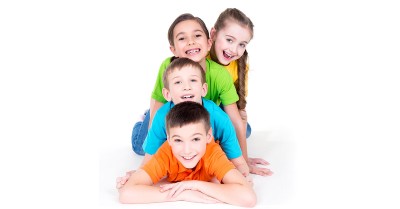
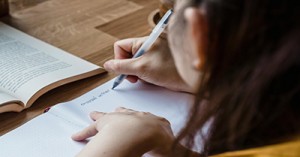
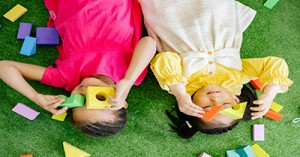

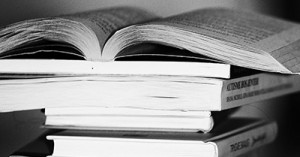
 Here is the list of the EYLF Learning Outcomes that you can use as a guide or reference for your documentation and planning. The EYLF
Here is the list of the EYLF Learning Outcomes that you can use as a guide or reference for your documentation and planning. The EYLF The EYLF is a guide which consists of Principles, Practices and 5 main Learning Outcomes along with each of their sub outcomes, based on identity,
The EYLF is a guide which consists of Principles, Practices and 5 main Learning Outcomes along with each of their sub outcomes, based on identity, This is a guide on How to Write a Learning Story. It provides information on What Is A Learning Story, Writing A Learning Story, Sample
This is a guide on How to Write a Learning Story. It provides information on What Is A Learning Story, Writing A Learning Story, Sample One of the most important types of documentation methods that educators needs to be familiar with are “observations”. Observations are crucial for all early childhood
One of the most important types of documentation methods that educators needs to be familiar with are “observations”. Observations are crucial for all early childhood To support children achieve learning outcomes from the EYLF Framework, the following list gives educators examples of how to promote children's learning in each individual
To support children achieve learning outcomes from the EYLF Framework, the following list gives educators examples of how to promote children's learning in each individual Reflective practice is learning from everyday situations and issues and concerns that arise which form part of our daily routine while working in an early
Reflective practice is learning from everyday situations and issues and concerns that arise which form part of our daily routine while working in an early Within Australia, Programming and Planning is reflected and supported by the Early Years Learning Framework. Educators within early childhood settings, use the EYLF to guide
Within Australia, Programming and Planning is reflected and supported by the Early Years Learning Framework. Educators within early childhood settings, use the EYLF to guide When observing children, it's important that we use a range of different observation methods from running records, learning stories to photographs and work samples. Using
When observing children, it's important that we use a range of different observation methods from running records, learning stories to photographs and work samples. Using This is a guide for educators on what to observe under each sub learning outcome from the EYLF Framework, when a child is engaged in
This is a guide for educators on what to observe under each sub learning outcome from the EYLF Framework, when a child is engaged in The Early Years Learning Framework describes the curriculum as “all the interactions, experiences, activities, routines and events, planned and unplanned, that occur in an environment
The Early Years Learning Framework describes the curriculum as “all the interactions, experiences, activities, routines and events, planned and unplanned, that occur in an environment